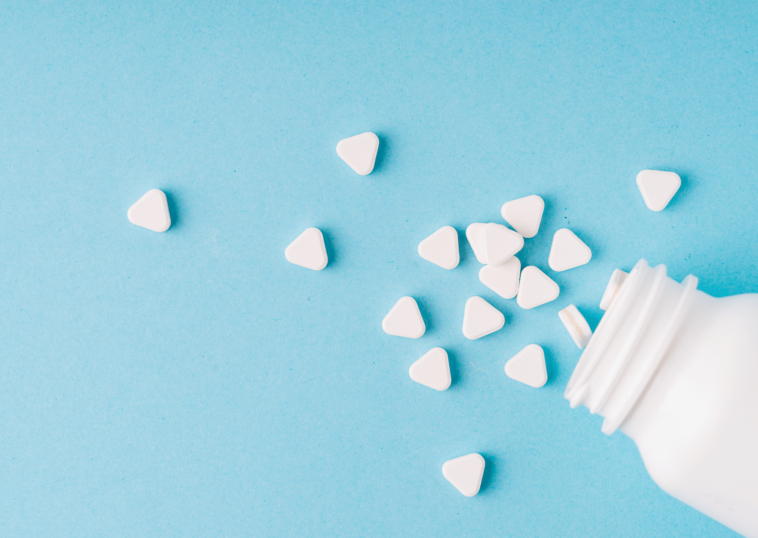One of the most frequently asked questions before bariatric surgery is: Will I need to take vitamin or mineral supplements afterwards? We are going to talk here about vitamin deficiency before and after surgery.
In addition, we are going to pay special attention to the lack of vitamin D, since the latest research links this deficit with a poor evolution of the Coronavirus infection .
VITAMIN D DEFICIENCY BEFORE BARIATRIC SURGERY
A vitamin D deficiency is very common in severely obese patients. This is due to the fact that the vitamin that is absorbed with food (mainly milk and derivatives) accumulates and becomes inactive in the fatty tissue of the body, even if the intake and sun exposure are correct. In fact, the majority of patients awaiting surgery are supplemented with vitamin D.
Coronavirus COVID-19 infection has been shown to be more severe in obese patients. They have a higher risk of complications and admission to the ICU. Some researchers have linked this worse evolution to the vitamin D deficiency of patients. Once again, we must insist on the importance of controlling obesity to improve health and go to specialized centers to establish guidelines and therapeutic alternatives.
Most weight loss surgeons recommend a correct and balanced diet, and vitamin D supplements should only be taken if there is a deficit demonstrated by the laboratory. Otherwise, overdose of vitamin D or ingestion without medical supervision can be toxic and dangerous.

VITAMINS AND MINERALS AFTER BARIATRIC SURGERY
After surgery, the patient’s stomach and digestive system are completely changed. As you have previously read on our blog, the first months you will have to eat a very exhaustive diet ( phase 1 , phase 2 and phase 3 post-surgery) but, in addition to this, you will need vitamin supplements, except for gastric band surgery.
Once normal weight and stability have been achieved, it will depend a lot on the type of surgery that you have performed: restrictive, malabosortive or mixed . Malabsorptive or mixed surgical treatments (such as gastric bypass) lead to vitamin deficiencies more frequently. This is because most of the nutrients we eat are absorbed in the intestine. Because these techniques reduce the absorption surface in the intestine, they cause nutrient deficiencies. In addition, the new gastric reservoir is smaller, this implies less secretion of gastric juices, food spends less time exposed to it and that also limits the absorption of minerals such as iron.
The most frequent nutritional deficiencies after bariatric surgery are usually anemia due to lack of iron and deficiency of vitamins B12, A, D and calcium. To avoid or at least minimize the lack of these nutrients, it is important to eat a balanced diet rich in fresh and nutritious foods.
Have you ever heard the phrase “don’t count calories, make calories count “? It is that 100 Kcal of oranges and 100 Kcal of any super cookie are the same calories. However, the first is full of vitamins and minerals that are very positive for your body. And the second, only have free sugars, saturated fats and refined flours, which are harmful to your health.
Well, that is the important thing in your diet from now on, avoid sugars and saturated fats that are only empty calories and plan your meal based on foods rich in vitamins, minerals, proteins, healthy fats, complex hydrates and other nutrients.
MOST FREQUENT VITAMIN AND MINERAL DEFICIENCIES
- The calcium is vital to keep our bones strong. It is also involved in other functions of our body, such as muscle contraction or nerve transmission.
- Vitamin D is responsible to metabolize calcium, so that it fulfills its function. Milk is a very good source of calcium and vitamin D, better whole, and if it is skimmed or semi, it is enriched. To activate this vitamin it is necessary to sunbathe at least 15 minutes a day. In addition, calcium can also be obtained from foods like almonds or broccoli .
- The iron deficiency anemia can cause deficiency of hemoglobin, a substance that enables red blood cells to carry oxygen. Therefore, the lack of iron causes fatigue, hair loss and, in extreme cases, shortness of breath. The best known source of iron is red meat, so it is important that you include it in your diet. It is true that many bypass patients have an intolerance and cannot eat it. But lentils and legumes in general and many nuts, such as pistachios, also contain iron.
- Vitamin B12, and others like it are important to metabolize proteins, helps form red blood cells and the maintenance of the central nervous system. It is important that you maintain your B12 reserve, for this you must eat meat, fish, eggs and dairy .
- Vitamin A is essential, especially for a healthy hair, and eyesight. You can get it by eating oranges, carrots, pumpkin and organ meats.

VITAMIN AND MINERAL SUPPLEMENTS
In bariatric patients, a complete and balanced diet is not enough to avoid this vitamin and / or mineral deficit. After weight loss surgery, especially if it is one of the malabsorptive or mixed type, such as a gastric bypass, it is likely that you will need a series of vitamin and nutritional supplements, such as:
- Iron: Take it on an empty stomach and accompany it a while later with vitamin C (fresh orange juice or another fruit rich in this vitamin).
- Multivitamin (Supradyn, Multicentrum, Pharmaton, Fitforme, Deliplus Korott, etc.)
- Calcium citrate with vitamin D (take it 2 to 4 hours after iron)
- B12 vitamin
- Protein supplement (in shakes, powders etc…)
You must take the supplements spaced between meals. That, together with a balanced and quality diet will make your bariatric surgery a success in the short, medium and long term.
And, most importantly, follow the advice your surgeon, endocrinologist and nutritionist before taking any bariatric vitamin.



